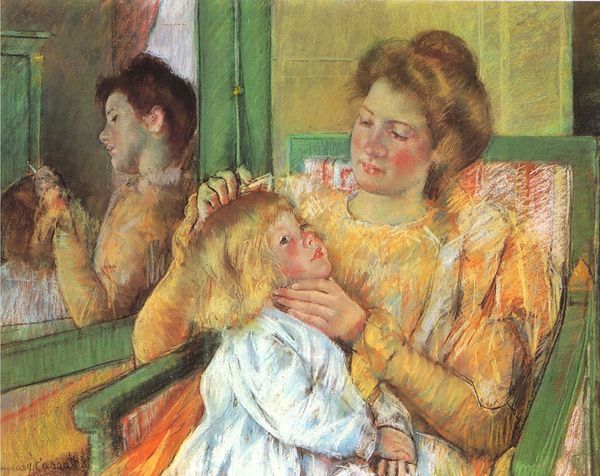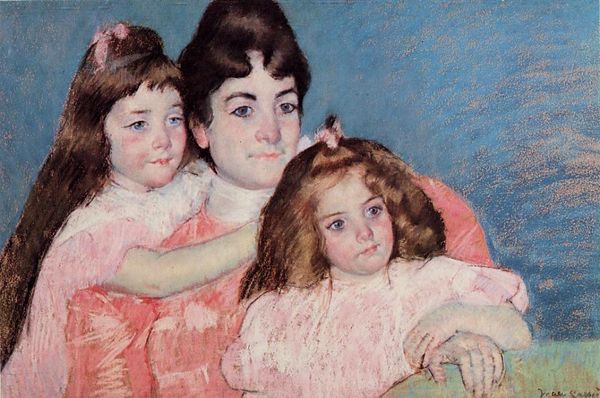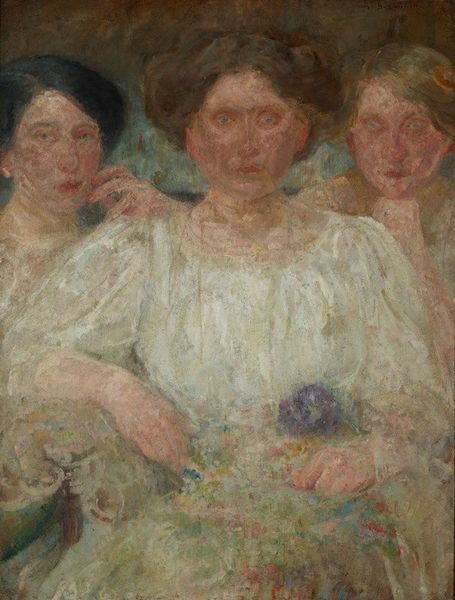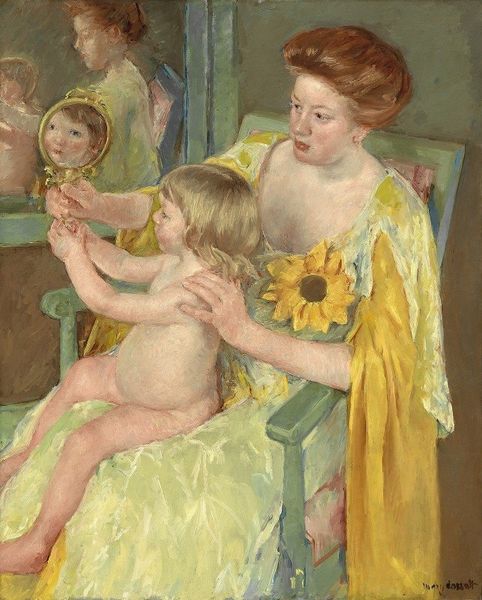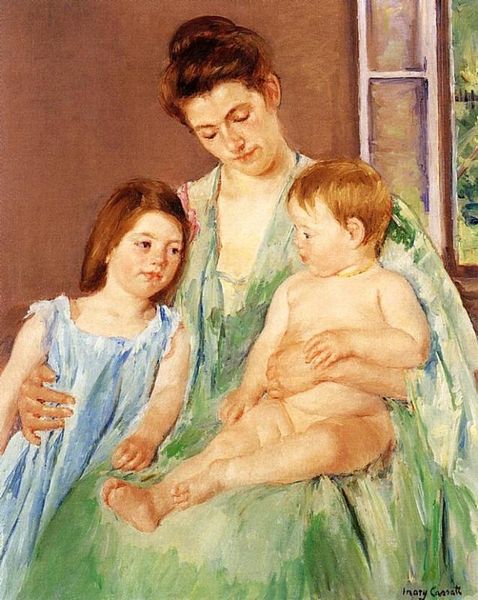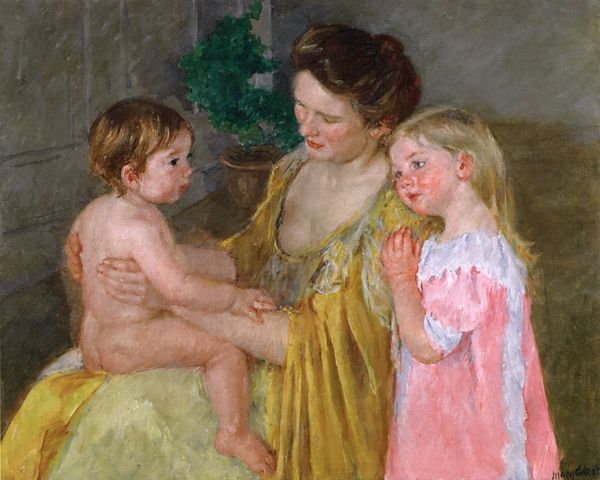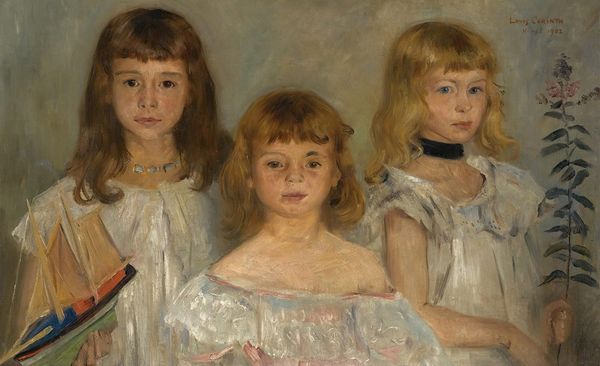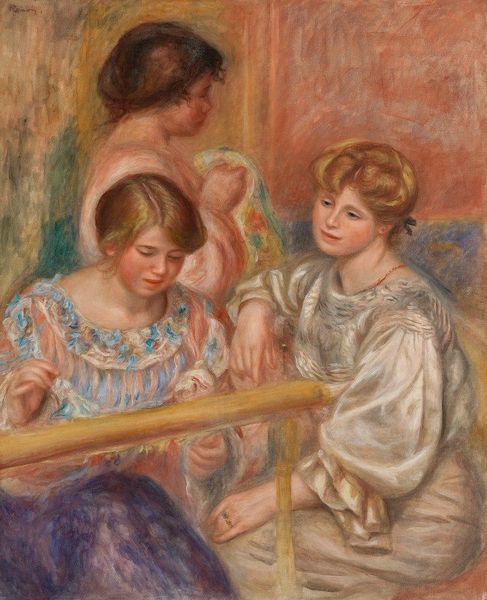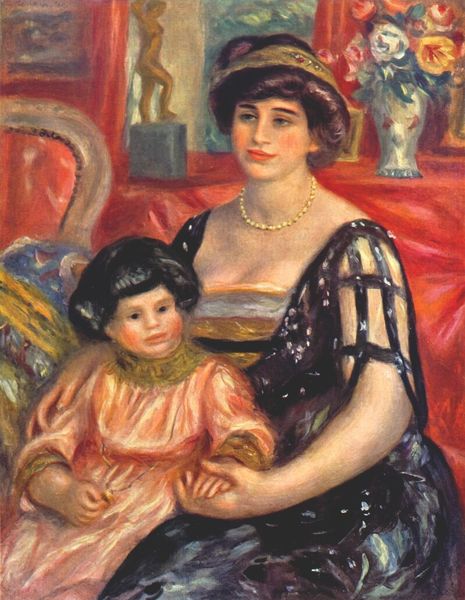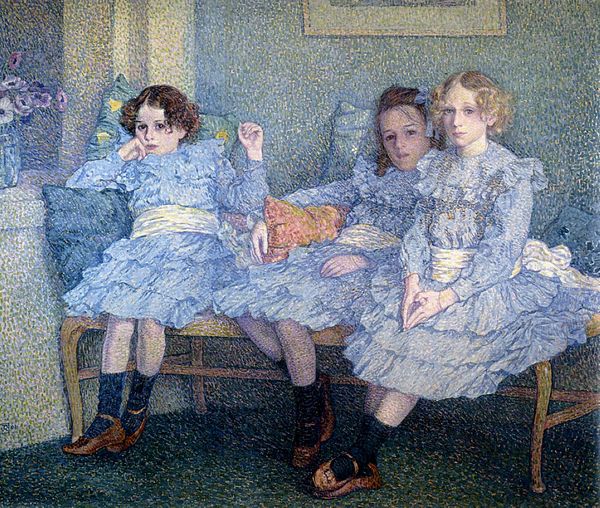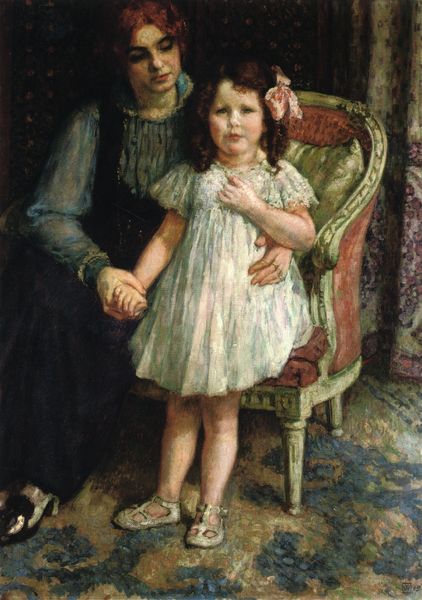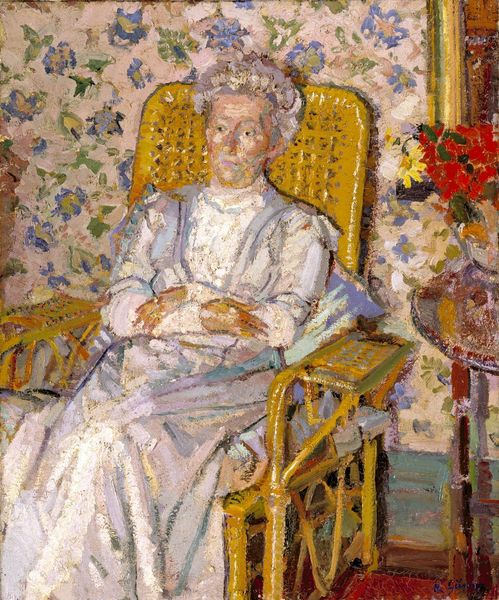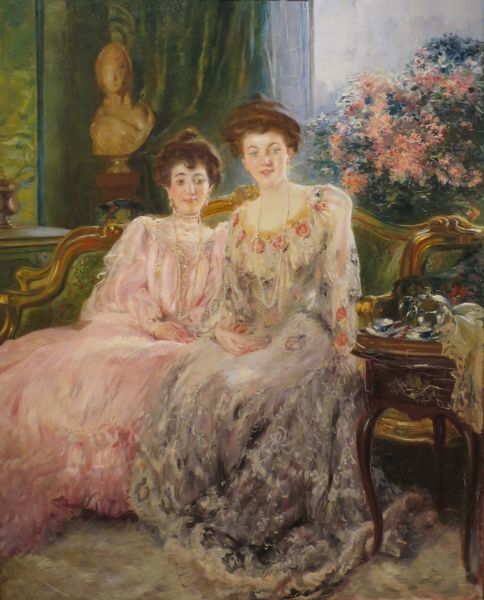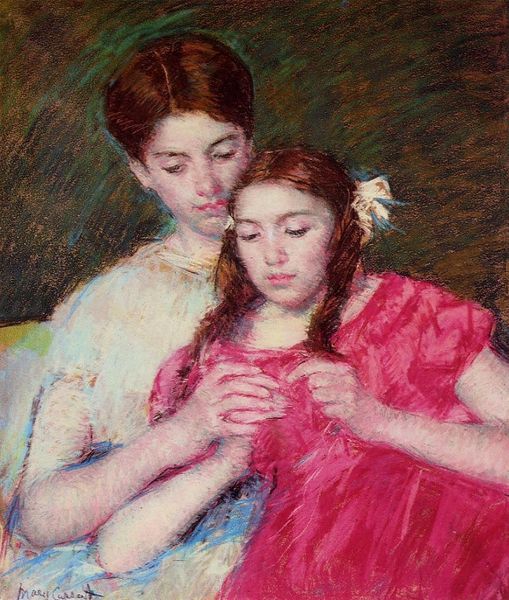
Copyright: Public domain
Theo van Rysselberghe painted "Madame Von Bodenhausen with her daughter Luli" using an intricate network of small brushstrokes that capture a tender, yet formal, portrayal of mother and daughter. The composition relies on a structured arrangement where the subjects are positioned against a patterned backdrop, creating a tapestry-like surface. The artist's pointillist technique invites us to analyze how color and light coalesce to form recognizable shapes and figures. The touches of color in close proximity create an optical mix, giving the painting a vibrant, shimmering quality that’s typical of Neo-Impressionism. Consider the way the vertical lines of Madame Von Bodenhausen’s dress contrast with the curved edges of her figure. This play between structure and fluidity is not merely aesthetic; it reflects a broader concern with how we perceive reality through fragmented sensations. The painting challenges conventional portraiture by emphasizing the act of seeing, asking us to deconstruct the image into its constituent parts before reassembling it in our minds. The painting offers no singular truth, but a dynamic field of possibilities, open to continuous interpretation.
Comments
No comments
Be the first to comment and join the conversation on the ultimate creative platform.
